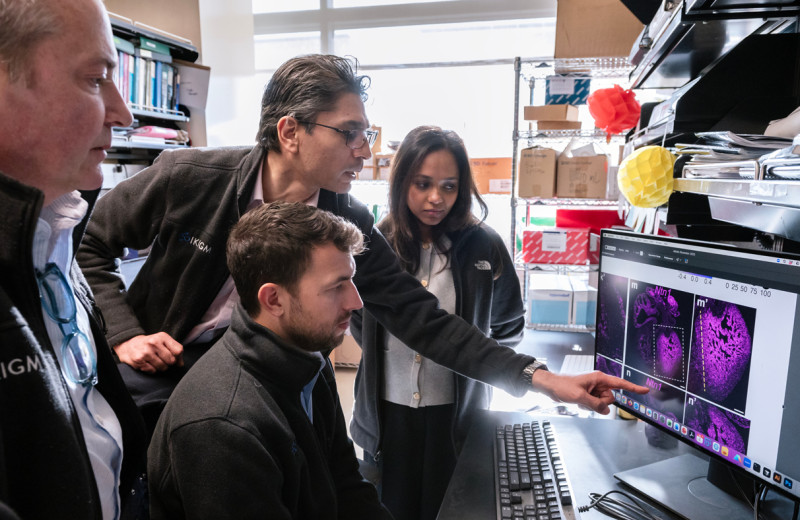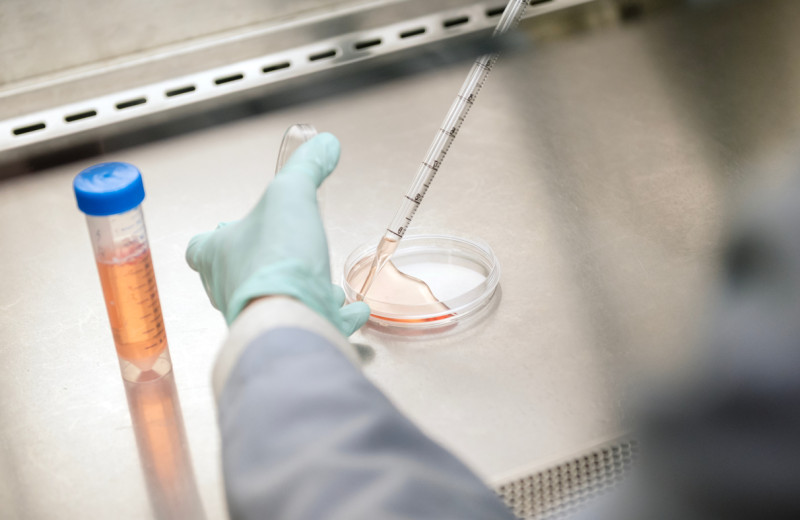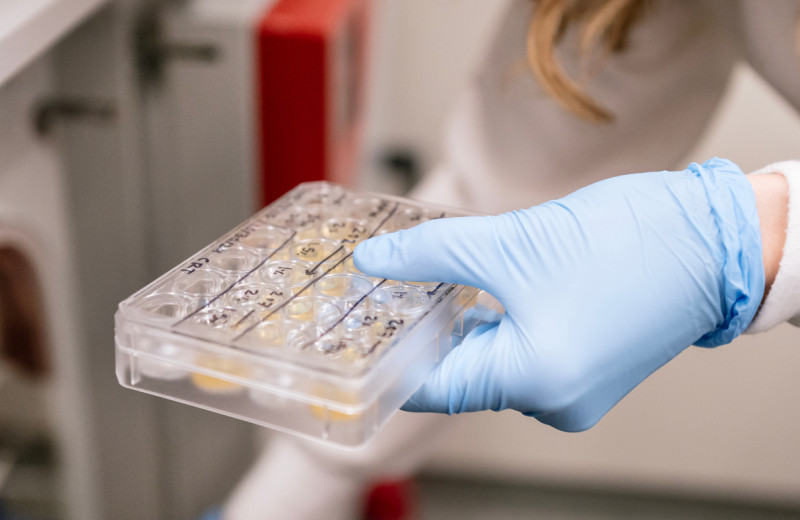Gladstone NOW: The Campaign Join Us on the Journey✕

Gladstone Senior Investigator Nevan Krogan, PhD, led a large effort to identify potential drug targets among human proteins that may mediate infection by SARS-CoV-2.
In the absence of treatment with proven efficacy against SARS-CoV-2, the virus that causes COVID-19, scientists are turning to compounds already approved for other conditions.
However, without a detailed knowledge of the molecular mechanisms by which the new coronavirus infects human cells, scientists cannot anticipate which drugs, among thousands of candidates, are the most likely to help fight the infection.
In a recent study posted on bioRxiv, a team of researchers led by Gladstone Senior Investigator Nevan Krogan, PhD, report their discovery of 332 human proteins that partner with the coronavirus’s proteins and might mediate infection of human cells.
Among these human proteins, nearly a fifth are known targets of drugs that are already FDA-approved or in clinical trials. These drugs, 69 in total, are therefore promising leads in the search for drug therapies against the virus.
By focusing on drugs that target human rather than viral proteins, the scientists hope to avoid the development of rapid drug resistance, as human proteins don’t mutate as fast as viral proteins.
The team of researchers, which includes labs from UC San Francisco, where Krogan is also director of the Quantitative Biosciences Institute, and other UC campuses, as well as from five other institutions in the US and abroad, relied on affinity purification mass spectrometry (AP-MS), a technology housed at Gladstone. This technology allows scientists to identify all the proteins in a cell that physically associate with any protein of their choosing.
The researchers introduced 27 of the 29 known coronavirus’s proteins into human cells in culture. Once inside the cells, the viral proteins found specific human proteins that they could latch onto—very much as they would during a normal infection. The researchers then used AP-MS to identify the human proteins associated with each viral bait.
After running these proteins against databases of small molecules known to bind to human proteins, the scientists arrived at 69 molecules that seemed most promising based on their ready availability, FDA approval status, and targeting specificity.
The AP-MS approach is powerful, and has previously led Krogan and his team to identify human proteins interacting with other viruses. However, it does not reveal the impact of the protein-protein association on the virus—human proteins that associate with viral proteins could either help the virus grow and propagate, or they could participate in the cell’s defense against the virus.
Similarly, the 69 drugs that target the human proteins could either help or hamper the virus. Confirmation of their therapeutic potential therefore awaits testing in experimental setups that replicate a normal infection.
To this end, the group is currently assessing the efficacy of these drugs in human cells infected with live virus rather than with isolated viral proteins. Ultimately, genetic approaches will be necessary to validate the impact of the human proteins on the infection outcome.
Aside from helping scientists home in on drug candidates, this study provides broad insights into the cellular processes affected by the infection. Scientists can use this information to understand or anticipate the effect of experimental treatments already attempted in the clinic—for instance the anti-malarial drug chloroquine.
The approach pioneered by Krogan should also uncover molecular processes that may be conserved among different infectious diseases, and speed drug discovery for future epidemics due to coronaviruses and other pathogens.
Other Gladstone members involved in the study include:
David E. Gordon, Gwendolyn M. Jang, Mehdi Bouhaddou, Jiewei Xu, Kirsten Obernier, Jeffrey Z. Guo, Danielle L. Swaney, Ruth Hüttenhain, Robyn M. Kaake, Alicia L. Richards, Beril Tutuncuoglu, Helene Foussard, Jyoti Batra, Kelsey Haas, Maya Modak, Minkyu Kim, Paige Haas, Benjamin J. Polacco, Hannes Braberg, Jacqueline M. Fabius, Manon Eckhardt, Margaret Soucheray, Melanie J. Bennett, Merve Cakir, Michael J McGregor, Qiongyu, Zun Zar Chi Naing, Yuan Zhou, Devin Cavero, Joe Hiatt, Theo Roth, and Ujjwal Rathore.
Support Discovery Science
Your gift to Gladstone will allow our researchers to pursue high-quality science, focus on disease, and train the next generation of scientific thought leaders.
Disrupted Boundary Between Cell Types Linked to Common Heart Defects
Disrupted Boundary Between Cell Types Linked to Common Heart Defects
Gladstone scientists identified a cellular boundary that guides heart development and revealed how disrupting it can lead to holes in the heart’s wall.
News Release Research (Publication) Congenital Heart Disease Cardiovascular Disease Bruneau LabGene Editing Strategy Could Treat Hundreds of Inherited Diseases More Effectively
Gene Editing Strategy Could Treat Hundreds of Inherited Diseases More Effectively
Scientists at Gladstone show the new method could treat the majority of patients with Charcot-Marie-Tooth disease.
News Release Research (Publication) Neurological Disease Conklin Lab CRISPR/Gene EditingGenomic Maps Untangle the Complex Roots of Disease
Genomic Maps Untangle the Complex Roots of Disease
Findings of the new study in Nature could streamline scientific discovery and accelerate drug development.
News Release Research (Publication) Marson Lab Genomics Genomic Immunology



